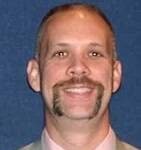There is living proof right here in Bartholomew County that the good (or evil) people do live after them.
It comes in response to the Jan. 14 column about a 69-year-old crime that occurred in neighboring Shelby County but played out in a Bartholomew County courtroom, where two teenage boys were convicted of murdering an Indiana state trooper.
Horrendous as the murder of a police officer is, most such incidents tend to eventually fade from public memory, especially after a time span of 69 years. It is, however, still fresh for the descendants in two families who have lived with the story all their lives, told in snippets by their relatives who were part of it.
Hope native Margie Thayer Boilanger and Hope Town Manager Mel Fox have grown up with the stories told by their parents and grandparents, but neither was alive when State Trooper Herbert Smith was shot and killed on a Shelby County road in December 1946 after he had stopped to check on a stalled vehicle. Inside the car were four teenagers, William Price (who was accused of firing the fatal bullet), William Johnson, Vera Hornback and Mary Ruth Ward.
The four ran into a nearby farm field but were apprehended after a posse of police officers and civilians launched a manhunt. Emotions ran high, especially among Smith’s fellow police officers. There were reports that the two teenage boys were repeatedly beaten at the scene of the crime and on the way to the Shelby County Jail.
The cases against the four were venued to Bartholomew County. The two boys went on trial for first degree murder but were spared the death penalty when the jury recommended life sentences. The two girls pleaded guilty to voluntary manslaughter and were sentenced to two- to 21-year terms. Later, the Indiana Supreme Court, citing the police beatings in particular, overturned Johnson’s sentence. He was retried and pleaded guilty to voluntary manslaughter.
William Price, the “triggerman,” served his sentence at the Michigan City penitentiary. In 1968 he was paroled after serving 20 years. He was 38 years old at the time.
Difficult memory
Mel Fox’s father and grandfather were on their way home from a business transaction when they came upon the scene of two cars, one belonging to a state trooper, parked alongside a Shelby County road in December 1946.“My dad, John Fox, was only 20 years old at the time,” she said. “They saw that Trooper Smith was slumped over in his car, and they also saw the four teenagers get out of their car and run into the woods.”His father, Wray Fox, got into the car and used the police radio to report the shooting and request assistance. Young John tended to the trooper.
“He was holding him in his arms when he died,” Mel said.
The Fox men relived the experience during the trial a few months later in Bartholomew Circuit Court. “My dad was said to be the key witness for the state,” Mel recalled.
She was born several years after the trial but became aware of it in her teen years through family conversations.
“My dad never really talked about it,” she said. “However my mother told me that he lived in fear that the teenagers would eventually get out of jail and come looking for him because of his testimony. That never happened, of course, but it was something he couldn’t get out of his mind.”
Mel thinks that possibility also occurred to her grandfather, especially since early media reports focused on the older man’s role.
“I have always wondered whether the media and the police used that story to protect my dad since he was only 20 years old at the time,” she said.
Different experience
Margie Thayer Boilanger grew up with the “Teenager Murder Trial” story from another perspective.Her father, Richard Thayer, was Bartholomew County sheriff during the trials of the four teenagers. He was a young man at the time and had just started a family after service in World War II during which he served 16 months in a German prisoner of war camp.The job was a lot different in those days. The sheriff and his family, for instance, actually lived in the jail, their quarters mere feet from the cells of the prisoners. The Thayers became personally involved in the lives of their inmates, in part because of the close living conditions but mostly because of the way they approached life.
“There was one inmate, a man named Robert Watts, who was eventually sent to the electric chair, and he would babysit my brother Gordon,” she said. “My dad even drove him up to the state prison where he was to be executed and let him sit in the front seat. They even had breakfast together.”
That would be later. In the first months of 1947, Dick Thayer was new to his job. Ironically, it was during the teenagers’ pretrial period when he came across an apparent escape attempt, finding steel bars in the bedding of William Price.
Despite that, Dick Thayer and his wife, Evelyn, took a personal interest in the young prisoner. So did her parents, E.C. and Opal Miller, who were frequent visitors to the jail and their family. Margie Boilanger laughs at the stories of her grandparents’ approach to incarceration.
“Grandma would ask the prisoners what they needed, and then she would run to the store and bring them back supplies,” she said. “Dad later told us that one night he caught several prisoners who were drunk as skunks. A couple of trustees finally admitted that they were drinking all the supplies Grandma was bringing them … aftershave, mouthwash and anything with alcohol. He had to inspect Grandma’s stuff after that.”
Even after William Price was transferred to Michigan City, the Thayer family stayed in touch with him, sending him notes, gifts and even money. Margie still has a letter Price wrote to the Thayers from prison, thanking Opal Miller for her Christmas gift of money.
Margie became personally involved in the story in her teens. “I wasn’t wild, but I guess I did some things that troubled my father,” she said. “One day he sat me down after one of those episodes and very forcefully asked me what I would do if I was caught in a situation like that the two girls who were with William Price faced. He told me the whole story, what had happened and all that, and his point was that when you’re young and get caught up in something so horrible, the consequences can be pretty severe.”
She was reminded of that story when she read the column about the four teenagers. It also raised a question and some hopes about what might have happened to William Price after his 1968 parole.
“He had written my family that he had gone through training to be a plumber and hoped to get into that profession when he got out,” she said. “He talked about how his mother had moved from Evansville to Michigan City to be near him and how he wanted to make a new life.”
Margie Boilanger is still waiting to find out the rest of the story and hopes that William Price has, indeed, made a new life.
Mel Fox thinks about State Trooper Herbert Smith and his sacrifice.
“It reminds us about first responders having the courage to serve in order to protect citizens,” she said.
Harry McCawley is the former associate editor of The Republic. He can be reached at [email protected].




